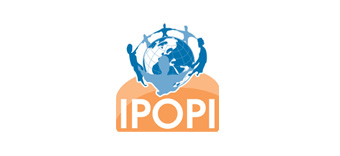June 2019
IPFA/PEI 26th International Workshop in Kraków, Poland
The 26th annual IPFA/PEI Workshop on Surveillance and Screening of Blood-borne Pathogens was held in Kraków, Poland and attracted more than 200 delegates from more than 30 countries. Ms Violetta Kozhereva, IPOPI Board member, participated in the meeting on behalf of IPOPI. This year’s keynote presentation was given by Dr Jay Epstein (US FDA) who shared major findings from the WHO Global Database on Blood Safety (GDBS) from 2015, showing inadequacy & maldistribution of global blood supply. Moreover, a major concern mentioned was deficiencies in blood donations’ screening, which could be avoided if all blood donations would be screened for HIV, HBV, HCV and syphilis as recommended by WHO. Another interesting session was that on Blood-Borne Virology – Pathogenicity vs Infectious Dose, discussing the complex relationships between viral load, minimum infectious dose and pathogenicity of blood-borne viruses.
The conference also highlighted a presumed return of Hepatitis A, as food-borne viruses and their associated outbreaks have increased in recent years. In the past years, several EU/EEA countries have reported food-borne outbreaks of HAV and norovirus infections and consumption of frozen berries has turned out to be the main vehicle of infection. Currently Europe has the highest number of reported HAV food-borne outbreaks (64%). Since the summer of 2016, hepatitis A has had an increased presence across the United States as well. Inclusion of this topic draws the attention to re-emerging infectious diseases which may have an impact on transfusion safety. In reading about these safety issues, one must of course bear in mind the differences between labile blood products and stable plasma-derived medicinal products such as immunoglobulin therapies. The latter have an excellent safety record obtained through robust donor selection, donation testing and viral inactivation/ removal processes.
Beyond the highlighting of various interesting topics such as the ones mentioned above it was also time to deliver the second annual IPFA Award, presented by Mr Rob Van Tuyle, IPFA President, to Professor Thierry Burnouf, PhD, College of Biomedical Engineering, Taipei Medical University, Taiwan. The award was given in recognition of his exceptional scientific contributions to new plasma fractionation technologies and programs, and virus inactivation and removal procedures.
IPFA PEI 1: Award ceremony for the 2d annual IPFA Award by Mr Rob Van Tuyle, IPFA President, to Professor Thierry Burnouf

